Water
Latest about water
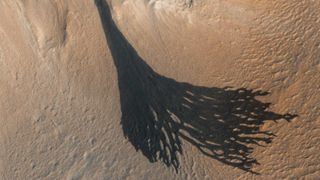
Long, dark 'streaks' spotted on Mars aren't what scientists thought
By Ben Turner published
A set of dark streaks that regularly wind across the Martian surface are more likely to be formed by dust and wind than by water, a new artificial intelligence analysis has revealed.
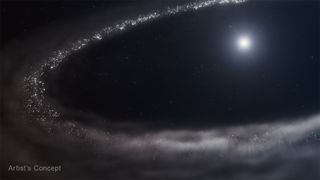
James Webb telescope discovers frozen water around alien star
By Sharmila Kuthunur published
The discovery of water ice around a distant star is allowing scientists to study how the key ingredient for life is delivered to young planets beyond our solar system.

Your fingers 'prune' the exact same way each time, study suggests
By Jess Thomson published
The wrinkled, raisin-like patterns you get on your fingers after a long bath form the same patterns every time, new research suggests.
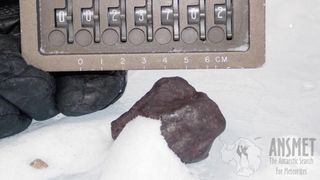
Ancient meteorite discovered in Antarctica could reveal the true origins of Earth’s water, new study claims
By Skyler Ware published
A meteorite found in Antarctica in 2012 suggests Earth may have formed with the materials needed to make water, a new study hints.
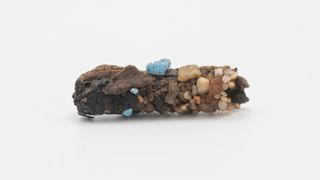
Microplastics have been in 'pristine streams' for half a century — what could that mean for human health?
By Miriam Bergeret published
New research shows that microplastics have been contaminating some freshwater streams decades earlier than previously recorded. What could that mean for human health?

Student accidentally creates 'shape-recovering liquid' that's an exception to the laws of thermodynamics
By Elana Spivack published
A graduate student accidentally created a blend of oil, water and nickel particles that formed an unexpected shape.
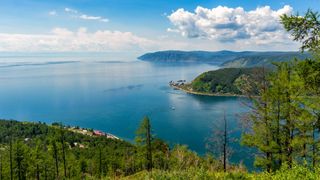
What's the oldest lake on Earth?
By Elana Spivack published
The oldest lake in the world dates back about 25 million years and is also the world's deepest and most biologically diverse lake.
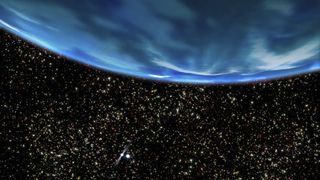
The universe's water is billions of years older than scientists thought — and may be nearly as old as the Big Bang itself
By Joanna Thompson published
A new study suggests that water first appeared in the universe just a couple hundred million years after the Big Bang — meaning life could have evolved billions of years earlier than previously thought.

Scientists spot water molecules flipping before they split, and it could help them produce cheaper hydrogen fuel
By Ben Turner published
A photograph of a water droplet.
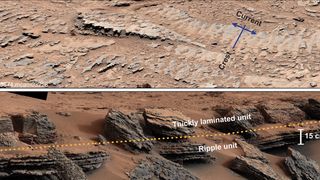
NASA rover discovers liquid water 'ripples' carved into Mars rock — and it could rewrite the Red Planet's history
By Joanna Thompson published
NASA's Curiosity rover photographed remnants of rippling waves in an ancient Martian lakebed, proving that the Red Planet had open water for longer in its history than previously thought.
Get the world’s most fascinating discoveries delivered straight to your inbox.


